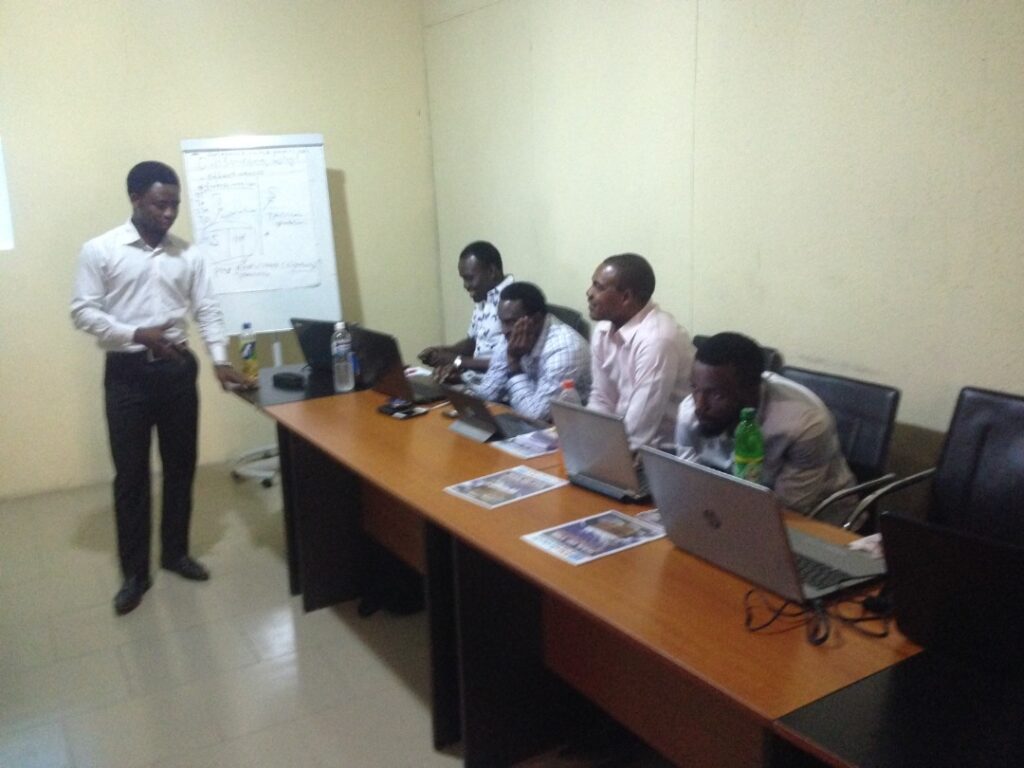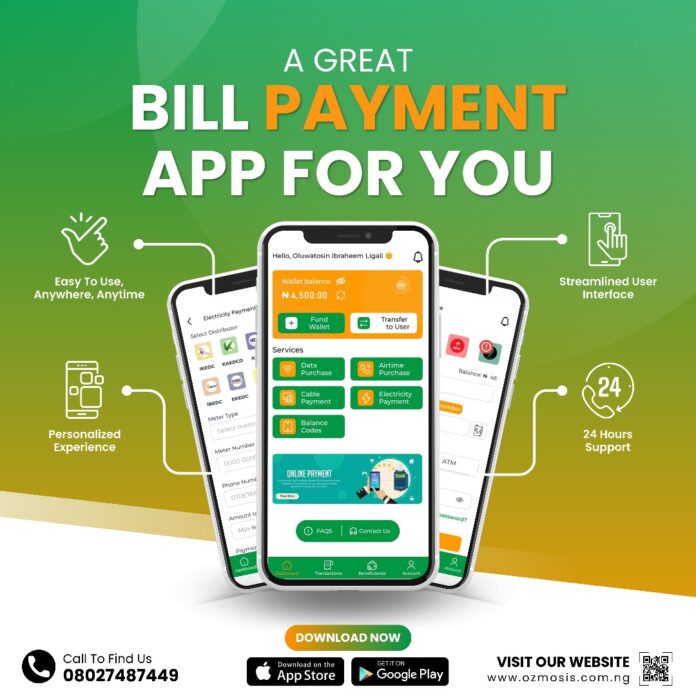Ligali has over time risen from bulk SMS trading as an undergraduate to become Ozmosis CEO, an online bill payment scheme.
By Eberechi Obinagwam
The story of Oluwatosin Ibraheem Ligali’s journey into entrepreneurship, is dotted with taking positive chances and focused steps. It all began in 2008 when he was in school and engaged in side hustles that were not so common, among students of his time. With dedication and enterprise, Ligali has over time risen from bulk SMS trading as an undergraduate to become Ozmosis CEO, an online bill payment scheme.
Popular social media platform, Facebook had just launched and Nigerians were literally frenzy about the new networking site. But Ligali was preoccupied with how he could also make it big like Mark Zuckerberg, the facilitator. And he got thinking.
“If this guy can be over there making money, let me also make the Naira equivalent because that was when Facebook started,” the University of Nigeria Nsukka (UNN), graduate of Industrial Technology (Electrical/Electronic option) told himself.
Bulk SMS trading
Ligali started thinking out of the box. Bulk SMS was the main thing then. It was a thriving business. The profit margin was high so he started with a bulk SMS platform with no direction nor vision but only a name, Moses Bliss which he grafted in school. As it launched, he had a couple of organisations, NGOs, churches, and individuals who started patronizing the business.
READ ALSO:
Ligali said he started the bulk SMS business with a capital of N5000. With the N5000, he secured a bulk SMS unit for N2000. And as time went on, sales began to grow from N10,000 to N50,000. “It was a cool one at that time,” he recalled with a smile.

Others later saw the opportunity in bulk SMS business and everyone appeared to plunge into the business. The numbers started reducing, and so was the profit.
But the fundamental lesson in entrepreneurship had been learned, which would become decisive in Ligali’s next move in life.
In 2011, the International Business Machines (IBM) put out a West Africa Competition that was based on entrepreneurship in celebration of its 100 years in business. This was just about a year after Ligali completed his NYSC.
As a young graduate, he applied and was selected. He became part of the lucky 100 applicants picked for the competition. He later emerged among the top 6 of 100 competitors across West Africa.
He recalled the moment. “When we went through the first stage of the competition and all of that, I was seeing people that had their businesses abroad. So, in my mind, I was like what am I even doing here? Can anything good come out of this? I was saying it because then I just finished NYSC and practically did not have an office and competing with these were people who were bigger than me. In my mind, I was like I can’t win anything here.”
Ligali said he was pleasantly surprised that at the end of the contest, he emerged among the top 6 of the 100 competitors across West Africa.
Emerging among the top 6
Because he had no prior business exposure as the other contestants, Ligali thought he stood no chance. “In my mind, I was like how did it happen,” he said.
But while thinking about it, the organisers said he was the only one that started a business while in school, hence, the reason for his choice among the top 6.
His prize in the competition included Curve i7 Laptop which was the latest at the time and other gifts.
Before the competition, he had applied for jobs in banks and other companies to no avail because of his age, which was already beyond 25. But the win was all the necessary motivation he needed and affirmation of becoming an entrepreneur.
Ozmosis Bills was born
“That year was the year I took the bull by the horns. I decided to grow my business. So, I started. Someone created a website, portal, and everything for me.”
He then delved into online bill payment which he called Ozmosis Bills- a payment platform where people can buy recharge cards, pay for electricity, TV bills, and data, and many more remote transactions.

Working with IT guys proved a nightmare as some could become unreliable. He decided to acquire IT skills as a way of dealing with that challenge. “I went into learning web development because of the experience with the IT guy who helped me in managing my business. If I wanted to change the address or phone number, I would call the person but he would come after seven days. So, I decided to go and learn it so I could do them myself.”
With the skills in web development, Ligali expanded his business to include training in web development.
Recalling challenges that have come his way on his journey, Ligali said he had a dose of it.
“As an entrepreneur, I have done a lot of things and failed. Failure is different from failing. I don’t like being a failure. Failing means that I gather experience on how to do something differently,” he said.
He, however, lamented that government policies were major hindrances for startups and SMEs to break through into the market.
“For instance, in the bill payment system, you have to grow from 100 users to 1000, 5000, and 10000 users and beyond. But you just see foreign-owned multinationals getting licenses to operate in that space. And they will just come in and it will become a major challenge for startups,” he said.
He added: “I have tried a lot of businesses. I have tried technology to drive real estate, but I logged out because of policies, like asking an SME to pay N100m before starting the business. That was 2019. So where will that SME see the money? Government policy for startups is not encouraging.”
He also said unstable internet services is another major challenge as most Nigerian service providers don’t provide dedicated IP addresses to clients due to the absence of servers. And the lack of servers is connected to the unstable power supply Nigerians are grappling with.
“So, when you keep login into foreign sites when people are very security conscious, they already catch your IP information so they know that this person with a laptop login on Monday is trying to use their cyber. By the time you log in again that same day like 10, 15 minutes with another IP address, it becomes suspicious over there. They can block you. We are still having these challenges.”

Despite the challenges, Ligali said he is not interested in relocating abroad except for vacation.
To him, it makes no sense to dump his thriving business in Nigeria and relocate abroad where he would be doing a menial job and suffering. He said he would rather stay back to grow his business with the 200 million population in Nigeria.
“The truth is that I have been opportune to be in about two to three different continents, about seven countries so I have seen the world from other points of view.
“I have been to Europe specifically. I remember when I was there and all the Nigerians were like don’t even dare go back to that country and in my own mind, I was like you guys are suffering here why should I stay and be a refugee?”











